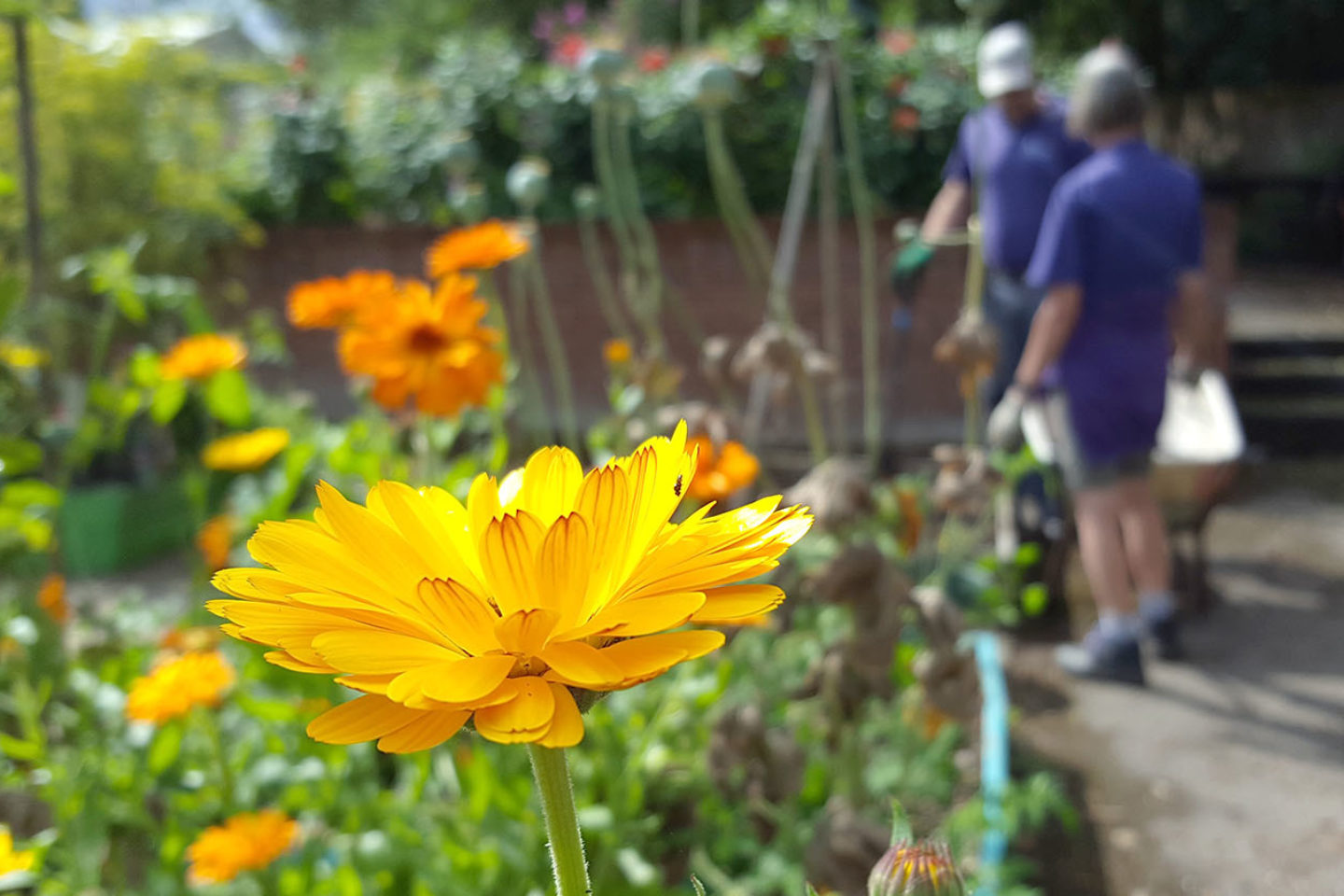
Every 40 seconds someone loses their life to suicide which means annually suicide claims nearly 800,000 lives, roughly equivalent to the population of Leeds.
The World Health Organisation says suicide is the second biggest cause of death among 15 to 29-year-olds and is calling for more to be done to ensure young people have the coping mechanisms they need to face the challenges they encounter.
What has this got to do with gardening you may ask?
As a charity focussed on promoting the health benefits of gardening, Thrive knows how time spent in gardens and nature can bring significant mental health benefits. We see and hear how it helps people cope when times are tough.

However you come at it, whoever prescribes it or gets you to do it, gardening heals.
Monty Don, Gardeners' World presenter
Psychological needs
Every day at our regional centres at Birmingham, London and near Reading, our Horticultural Therapists work closely with client gardeners of all ages who have a wide range of psychological and physical health needs
We see how gardening can reduce stress and anxiety, how the process of nurturing plants can give fragile people a sense of achievement which in turn builds confidence, self-esteem, quality of life and, ultimately, hope.
Academics Stephen and Rachel Kaplan have researched the value of the natural environment, including gardens, and concluded that they have powerful restorative properties, helping people recover from mental fatigue.
As most gardeners will tell you, gardening is a very effective way of shifting our focus away from our problems and the travails of everyday life.
Anorexia
And don’t think that gardening only appeals to, or works for, older folk. A few years back, Thrive ran a 20-month gardening programme for 12 to 16-year-olds with severe psychological and psychiatric disorders, including bulimia and anorexia.
Compared with other therapy sessions on offer, the teenagers chose to get more involved with gardening and overall it had a very positive impact on them.
Here’s what some of the people taking part said:

Gardening heals
Such comments underline that gardening is an activity that offers meaning and purpose, and crucially it is one that is so accessible.
As the nation’s favourite gardener, Monty Don, put it recently ‘However you come at it, whoever prescribes it or gets you to do it, gardening heals’.
If you know of someone who is struggling, why not encourage them to give gardening a go?
USEFUL RESOURCES:
For help with gardening if you have a disability, visit the Get Gardening section of this website
Set up a gardening club for young people with mental health issues using our Gardening4U guide
Join a therapeutic gardening programme at one of our regional centres
* Photographs: Dan Meyers on Unsplash and Thrive.
